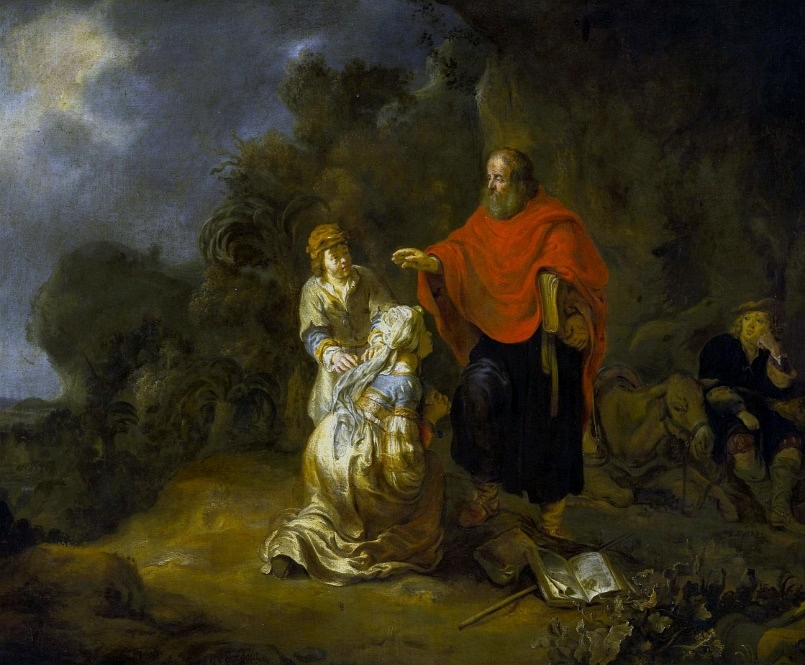31 December 2015
Shunammite Woman: Hoping against Hope
2. Kings 4:8-37
I.
A hole in my womb,
desperate to be filled.
A gap in my heart,
longing to be complete.
A space in my arms,
waiting to hold
a child of my own.
A dream unfulfilled,
turning into a nightmare,
as month after month
my hopes are dashed,
as year after year
my womb remains empty
and my wish retreats
into resignation.
So don't give me false hopes now,
Man of God,
for my faith has been stretched
beyond belief
and I couldn't take
another disappointment.
II.
A quickening in my womb -
the answer to my prayers!
Love in my heart
ready to be shared.
Complete at last,
for lying in my arms:
a child of my own.
III.
An ache in my womb:
childless again.
A stab in my heart
as it tears apart,
as in my trembling arms
he breathes his last:
the child of my own.
Is this the price
for becoming a mother:
to receive this precious gift,
then watch it slip away?
to be granted a miracle,
but only for a while?
to hold my own son,
only to watch him die?
So don't give me false hopes now,
Man of God,
for my faith has been stretched
beyond belief,
and I couldn't take
another disappointment.
And yet
you are the only one
I would still turn to now,
hoping against hope
that the hope you give me
is not false.
IV.
You gave me no false hopes,
Man of God:
Now my faith has been stretched
beyond belief,
as I have seen
miracle after miracle,
received gift after gift,
and in my arms lies again
this child of my own,
returned to me once more.
___________________________________________________
[31. December 2015]
The Shunammite woman was a rich woman who supported Elisha's ministry. Wanting to reward her, Elisha offered to give her what she wished for - she did not tell him directly, rather Elisha's servant Gehazi told Elisha that she wished for a son. I find her answer quite intriguing: "No, my lord, O man of God; do not deceive your servant." (2. Kings 4:16) I based the "don't give me false hopes" bit on that. The first section (I.) is about her barrenness and longing for a child.
The second section (II.) is about how the Shunammite woman's wish was fulfilled, and she had a son. However, one day the boy fell sick or something (he went around crying "My head, my head!", so probably had some pain in his head) and died in her arms (v. 18-21) (III.). His mother went to Elisha - and insisted that he help her, and no one else (though interestingly enough she didn't directly ask for help, but just alluded to something being wrong with her child). I find it interesting how in this story and in the story of Naaman, Elisha does not show very much interest in getting personally involved (he sends his servant instead). But on the woman's insistence, he goes himself. The child comes back to life - actually the second miracle this mother has experienced (IV.).
First she received a child against all hope - then she lost him, and received him a second time against all hope! Quite an experience!
I wanted to combine here the themes of longing for a child, faith when it's hard to believe, the woman's doubts ("do not deceive your servant" / "don't give me false hopes"), loss of a child, and how the woman experienced two miracles - receiving, losing, and receiving again.
Picture by Gerbrand van den Eeckhout - the scene where the woman goes to Elisha and insists on him coming to help.
Subscribe to:
Post Comments (Atom)

love this
ReplyDelete